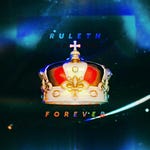Thou hast set men over our heads. We have passed through fire and water, and thou hast brought us out into a refreshment. (Psalm 65:12 DR)
We have a saying that the only way out is through, which seems to be a variation on a line from Robert Frost’s poem A Servant to Servants. The phrase itself—which I suppose is meant in other contexts to be motivational—in the context of the poem seems rather the opposite, as the speaker is a woman whose husband makes all sorts of speculative investments without much return, and she is left to shoulder the burden of keeping things together. The relentless monotony and overwork has left her health in shambles, and while she thinks she needs rest more than anything, her husband thinks it’s a matter of finding the right doctor:
He thinks I’ll be all right
With doctoring. But it’s not medicine —
Lowe is the only doctor’s dared to say so —
It’s rest I want – there, I have said it out —
From cooking meals for hungry hired men
And washing dishes after them — from doing
Things over and over that just won’t stay done.
By good rights I ought not to have so much
Put on me, but there seems no other way.
At the end of the day her husband thinks his ambitions are only one step away from success, always just around the corner:
Len says one steady pull more ought to do it.
He says the best way out is always through.
And I agree to that, or in so far
As that I can see no way out but through —
Leastways for me — and then they’ll be convinced.(Robert Frost, Servant of Servants)
The out that she speaks of at the end is not the same out that her husband has in mind, for in his usage it’s just one more deal, one more investment, one lucky break and all the hard work and sacrifice will be worth it and everything made right. Thus, just one steady pull more ought to do it. For her, however, every one steady pull more leads to another one steady pull more, and her out is the death that she sees as inevitable, in which her diagnosis of lack of rest will be grimly vindicated—once she gets out by going through, then they’ll be convinced.
As the Psalmist continues with his own poetry, he concludes this section of the catalog of sufferings and tribulations that the righteous have faced from the hand of God, which has been His means of setting my soul to live from a previous passage. This conclusion ties these themes of living and suffering together in a recapitulatory fashion, for God’s people have passed through fire and water but have been brought out into a place of refreshment. The fire and water correspond to the proving, trying, nets, afflictions and persecutions recounted earlier, while the place of refreshment corresponds to setting my soul to live.
It is crucial to note that apparently the best way out is through, but that through is characterized by suffering and testing. There is perhaps a slight distinction introduced between the earlier afflictions and this, for while the former are introduced with Thou hast, in this case the focus is redirected to the perspective of God’s people. The Psalmist says we have passed through, rather than Thou hast made us pass through. However, the Psalmist then immediately reframes in the next clause using the familiar Thou hast by saying: Thou hast brought us out into a refreshment.
There is thus probably not a distinction in actuality, but rather a juxtaposition. That is, God both lays these tribulations upon them to test and prove them, but also is the One Who brings them out of them into salvation. In other words, God is present both in the trial and in the redemption, and His hand has wrought both. Their being brought out of these trials and testings and into life is not something they generate out of themselves or that they accomplish of their own initiative or power. In the testing and in the saving it is God’s work from start to finish.
There is thus a sober fear of the Lord Who will bring such suffering and trial for the purpose of trying and proving, as well as a confidence that He is the One Who brings salvation. This is well summed up in Job’s prayer:
Naked came I out of my mother’s womb, and naked shall I return thither: the Lord gave, and the Lord hath taken away: as it hath pleased the Lord so is it done: blessed be the name of the Lord… if we have received good things at the hand of God, why should we not receive evil? (Job 1:21, 2:10 DR)
St. Augustine notes that the imagery of fire and water has its correspondence with the adversities of life and the blessings that can abound:
Fire and water are both dangerous in this life. Certainly water seems to extinguish fire, and fire seems to dry up water. Thus also these are the trials, wherein abounds this life. Fire burns, water corrupts: both must be feared, both the burning of tribulation and the water of corruption. Whenever there is adversity, and anything which is called unhappiness in this world, there is as it were fire: whenever there is prosperity, and the world’s plenty flows about one, there is as it were water. (St. Augustine, Expositions on the Psalms, 65, 17.)
The irony of fire and water is that both are necessary, but both can destroy. Fire provides necessary warmth but can burn and consume, whereas water is vital for survival, but in a corrupted state (like unpotable water) can be the very cause of decay and death, not to mention the potential of drowning. Both are needed, both should be feared.
Adversity in and of itself is necessary for our good, for if we never have to struggle for anything we become listless and slothful and indolent. Much like how silver or gold without fire remain useless rocks, so our souls without their own proving will never seek after the things of heaven but will become contented with the things of this world. Yet this adversity which is necessary can also become a fire that consumes if we do not persevere through it. Temptations which burn like a fire yet which are overcome become a source of merit, but if they are succumbed to provide a forestate of the fires of hell.
Prosperity is not in and of itself an evil, and God is the giver of all good gifts. In some seasons He blesses with abundance, and—as our Lord says—our Father in heaven knows that there are things of this world that we do need. The danger of this water is that we will drown in the midst of prosperity or that it will poison our souls if we consume too much, like water that is no longer viable to drink. God may provide abundance and prosperity in certain seasons, but our souls cannot become fixated on the things of this world, or imagine that we are somehow owed these things. The Psalmist elsewhere warns that if riches abound, set not your heart upon them, for God will render to each man according to his works.
Both the fire and the water are necessary to pass through, but we must take heed lest they destroy:
See that fire burn you not, nor water corrupt. Be thou strong against the fire, thou must needs be baked; as though thou wert a clay vessel, thou art cast into the furnace of fire, in order that the thing which hath been formed may be made strong. The vessel then now by fire being made strong feareth not the water: but if the vessel shall not have been hardened by fire, like mud in water it will be dissolved. Hasten not to the water: through fire pass over to the water, that thou mayest pass over the water also. (St. Augustine, Expositions on the Psalms, 65, 17.)
St. Augustine masterfully expands this metaphor in noting that a vessel made out of clay in its original state is vulnerable to water—if you try to fill it with water, it will turn to mud and lose its shape altogether. It is only through being fired in the kiln that it becomes strong enough to hold water and not be destroyed as it would be before. If the clay stays forever in the fire it will eventually become too brittle and crack and break, but yet this fire is necessary for a time to make it into what it is supposed to be.
For the soul there is likewise the necessity of being in the kiln of trial and temptation to become hardened and strong. If the water is the prosperity of the world, which itself corresponds to the love of the things of this world, then the implication is that only by suffering and bearing through temptation and trial can we escape having our souls turn to mud—as it were—by the love of the things of this world. This proving of the soul by fire allows for its proving also by water, so that we can withstand both the flames of adversity and tribulation as well as the equally perilous temptation of prosperity.
The just and the holy, then, who may be compared to gold, pass through fire and water without suffering any harm; because, in their tribulation, they keep their patience; and in their prosperity, their moderation; but the children of this world, like rotten timber, are consumed in the fire, or crumbled in the water; because, being unable to bear their troubles with patience, they murmur, they rail, they blaspheme; while, in their prosperity, they revel in all manner of luxury, pride, and effeminacy. (St. Robert Bellarmine, A Commentary on the Book of the Psalms, 65, 12.)
St. Augustine notes that this passage also draws a correlation to exorcisms and Baptism:
Therefore also in the mystic rites and in catechising and in exorcising, there is first used fire. For whence ofttimes do the unclean spirits cry out, I burn, if that is not fire? But after the fire of Exorcism we come to Baptism: so that from fire to water, from water unto refreshment. But as in the Sacraments, so it is in the temptations of this world: the straitness of fear draws near first, in place of fire; afterwards fear being removed, we ought to be afraid lest worldly happiness corrupt. But when the fire has not made you burst, and when you have not sunk in the water, but hast swum out; through discipline you pass over to rest, and passing over through fire and water, you are led forth into a place of refreshment. For of those things whereof the signs are in the Sacraments, there are the very realities in that perfection of life everlasting. (St. Augustine, Expositions on the Psalms, 65, 17.)
The adversity of the demons and the love of this world are thus overcome by exorcism and Baptism, the sacramental reality bringing us, as St. Augustine says, into the very realities to which the outward signs point and into which the grace imparted conducts. The refreshment of which the Psalmist speaks recapitulates these signs and transfigures them—as it were—to be the blessedness of the righteous in the Beatific Vision:
The elect, therefore, say, “We have passed through fire and water, and thou hast brought us out into a refreshment;” because in our heavenly country there will be no lack of fire and water; that fire, however, in warming will refresh us, instead of destroying us in its fury; and that water, while it extinguishes our thirst, will not take away our life. We will thus be refreshed by both in their own way; that is to say, in heaven we shall have the fire of charity, which will heat without harming, perfecting instead of destroying; transforming us into God, instead of turning us into ashes. There will be an abundance of water; the real and eternal truths, the immense joys, and the ineffable pleasures; but such as will not enervate or weaken the soul, or stir up the concupiscence of the flesh against the spirit; and finally, will delight it by refreshing it, without suffocating it by excess. (St. Robert Bellarmine, A Commentary on the Book of the Psalms, 65, 12.)
I found this water image and brought it into After Effects and created a precomp. In that precomp I used LoopFlow creatively to give it some outward motion and then animated the scale of the layer and opacity to have it feel like it was coming towards the camera and going through the vortex. The remainder was timing out the duplicates and adding some color correction and such.
Enjoy.
Thou hast set men over our heads. We have passed through fire and water, and thou hast brought us out into a refreshment.
(Psalm 65:12 DR)
View a higher quality version of this gif here:












Share this post